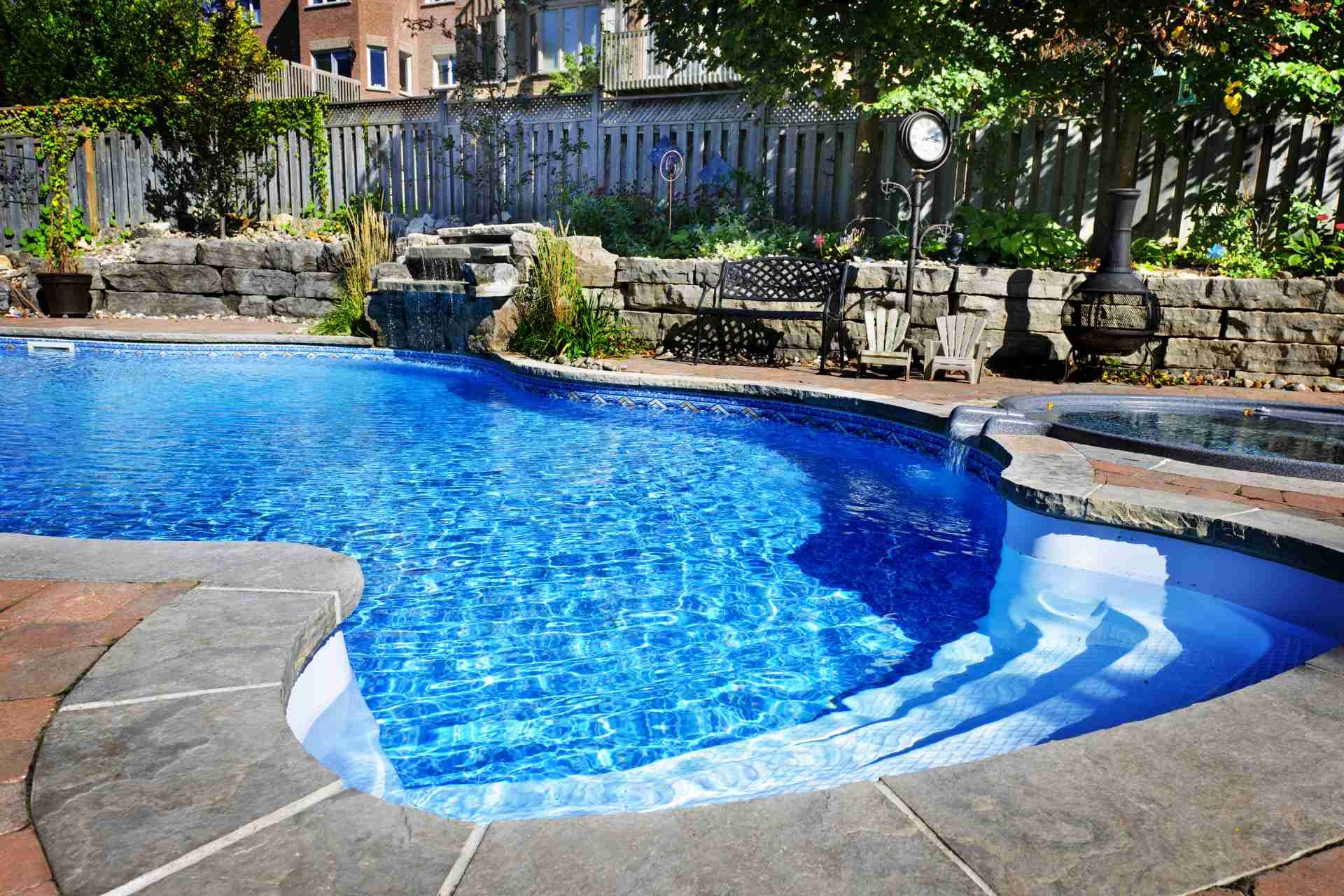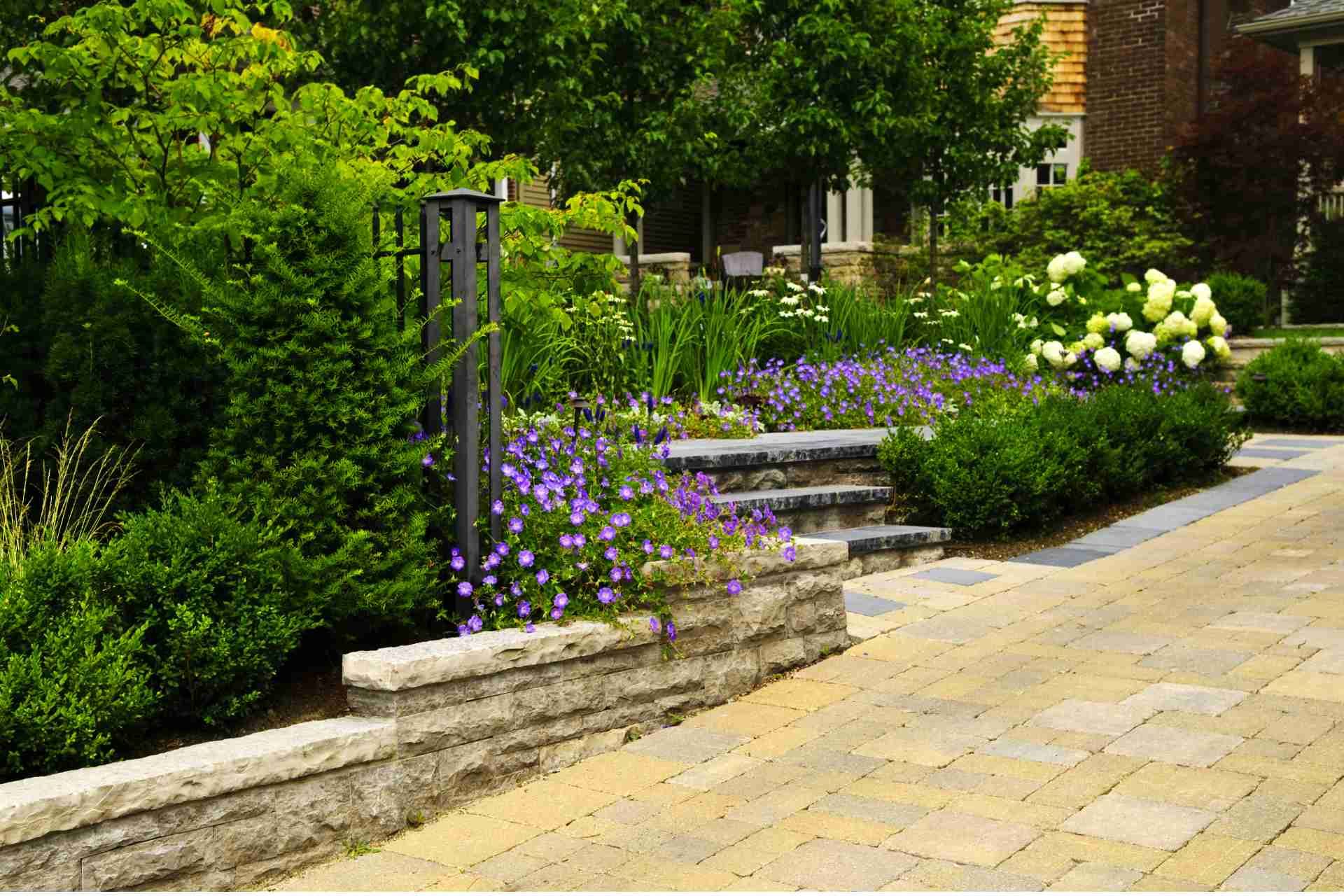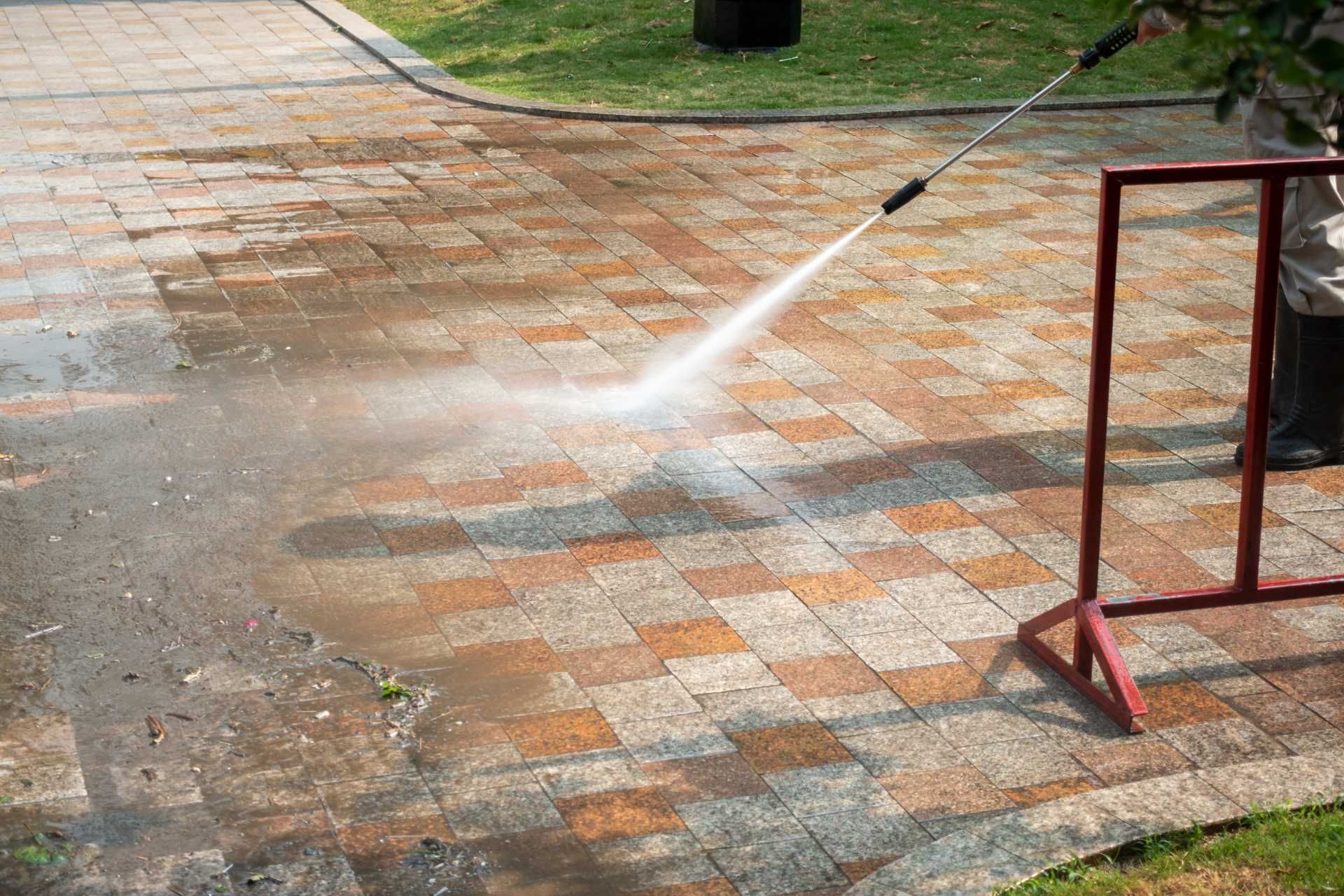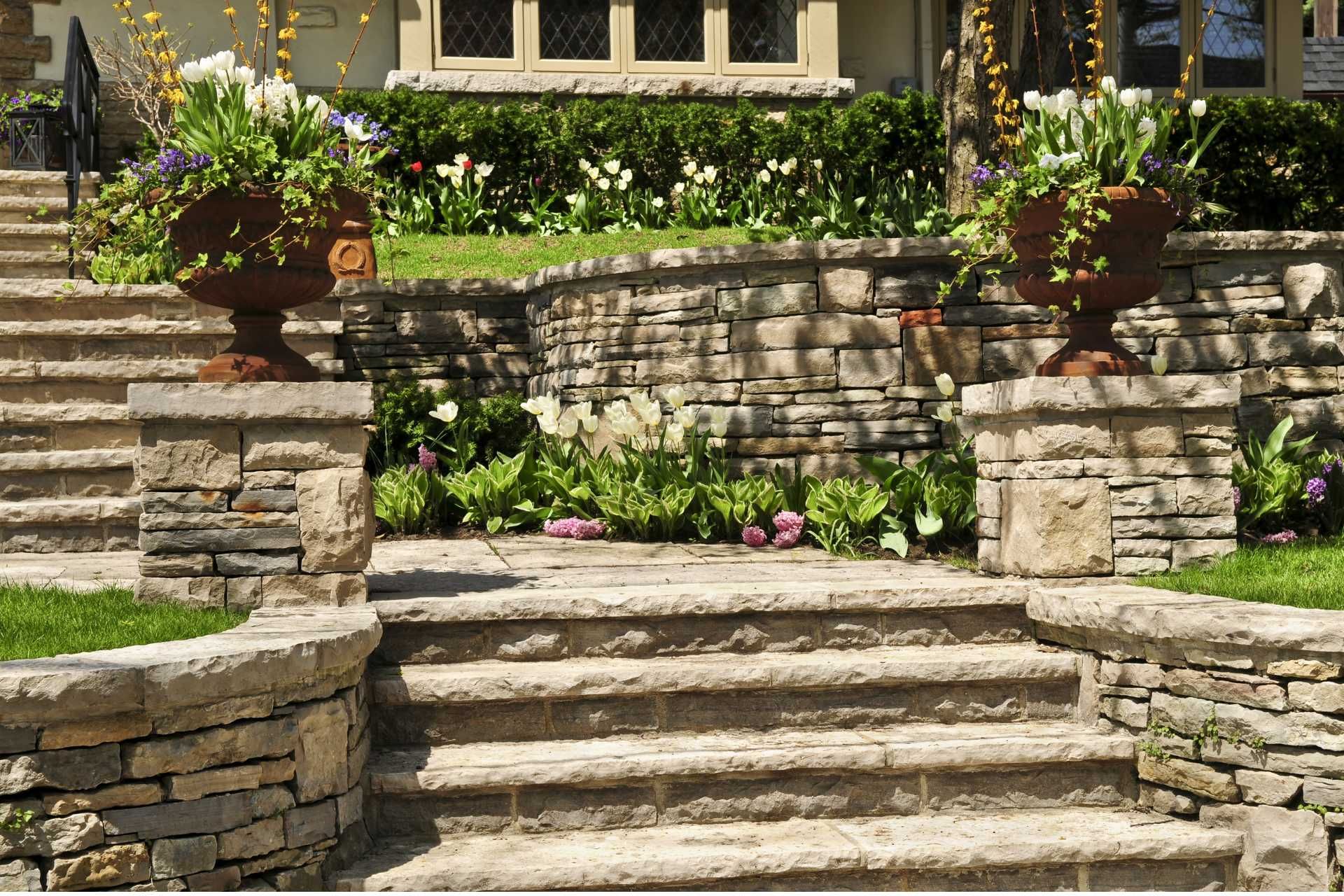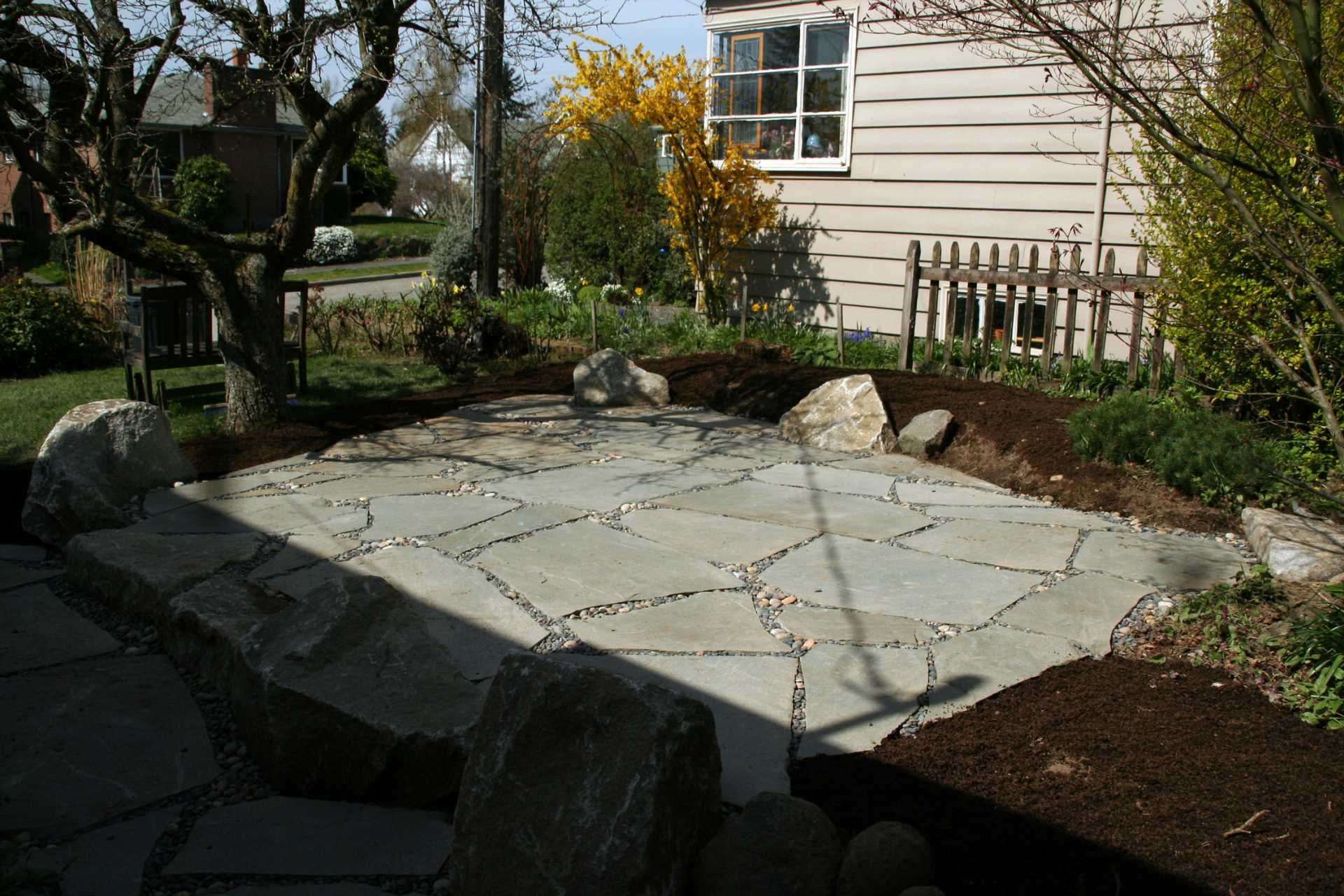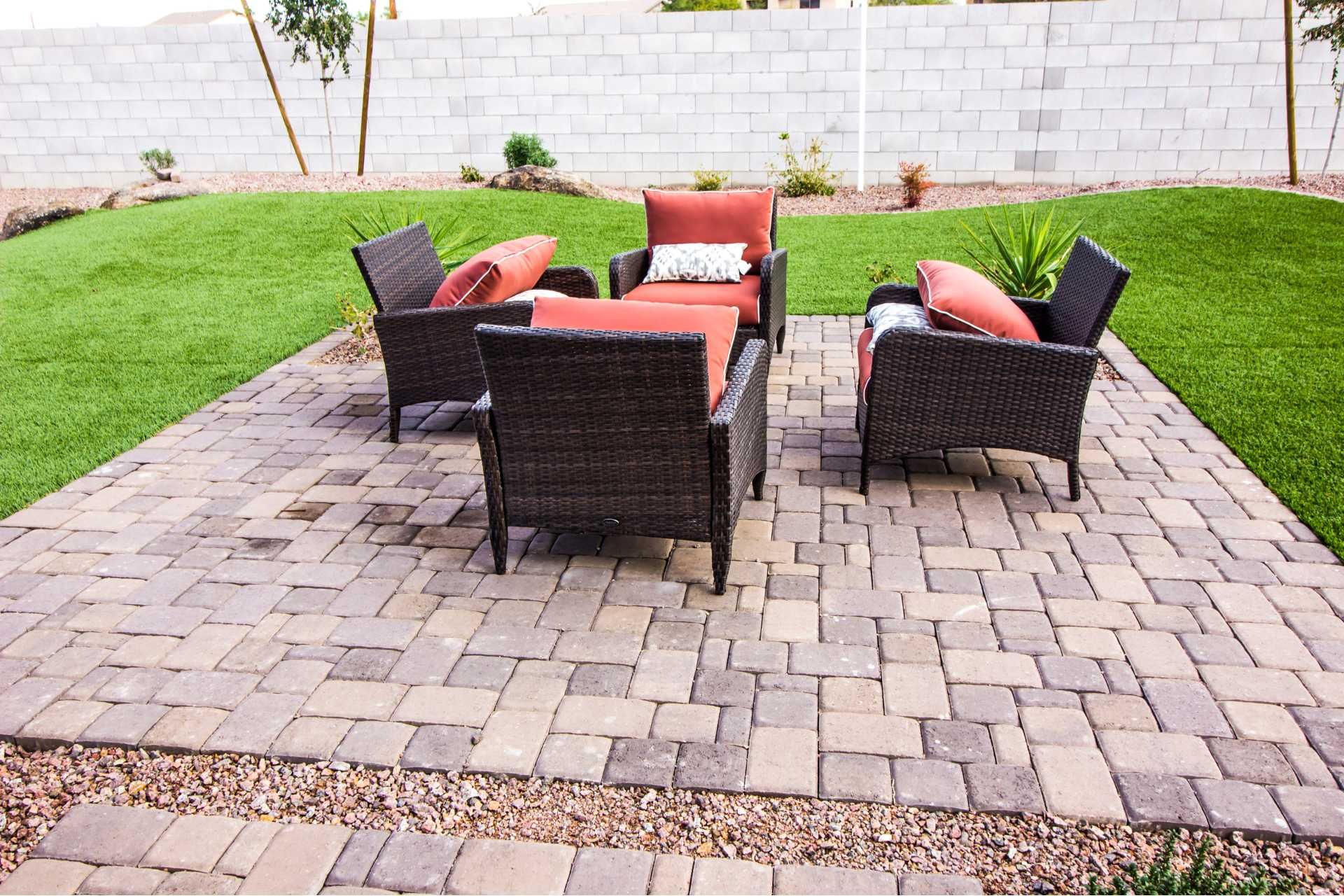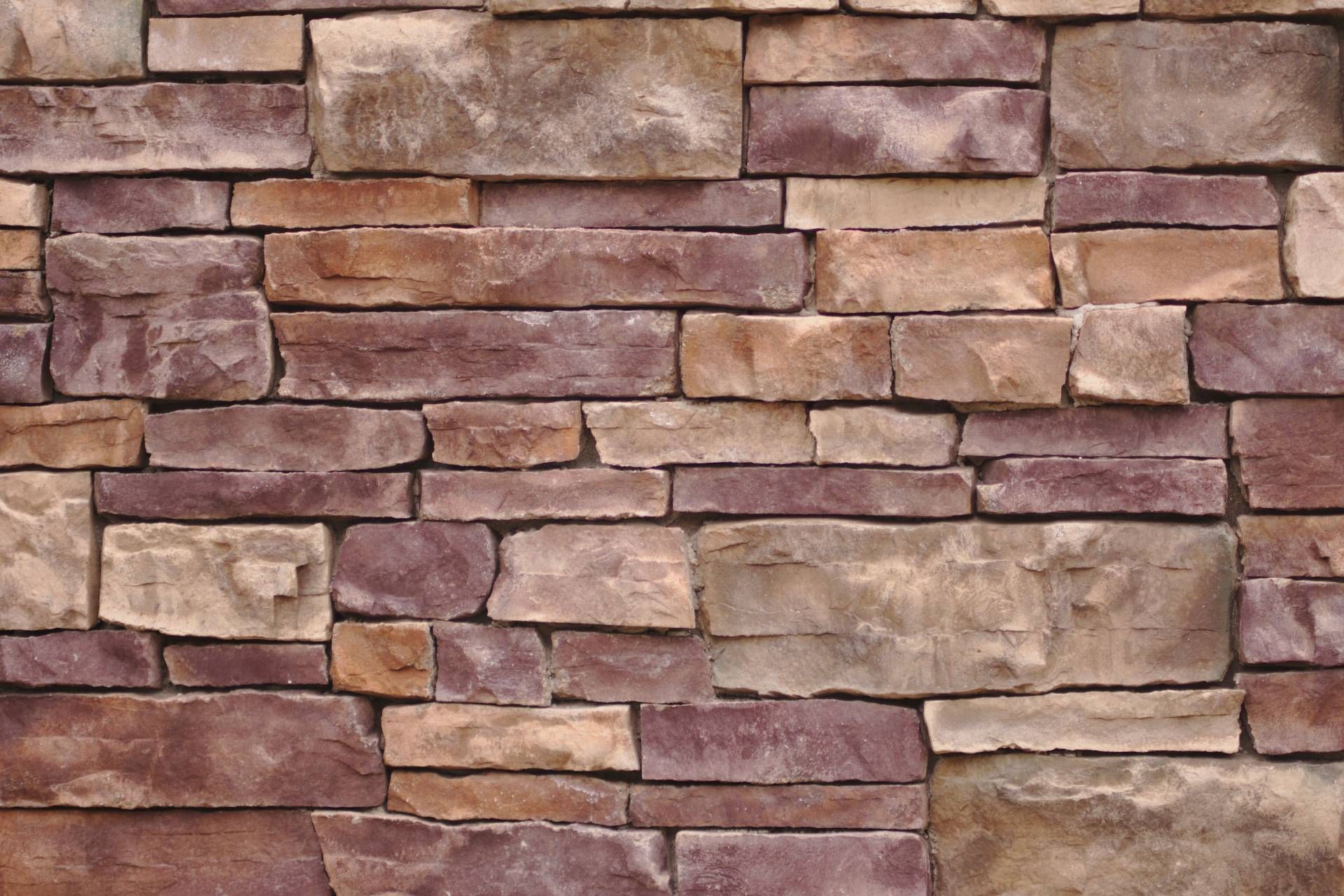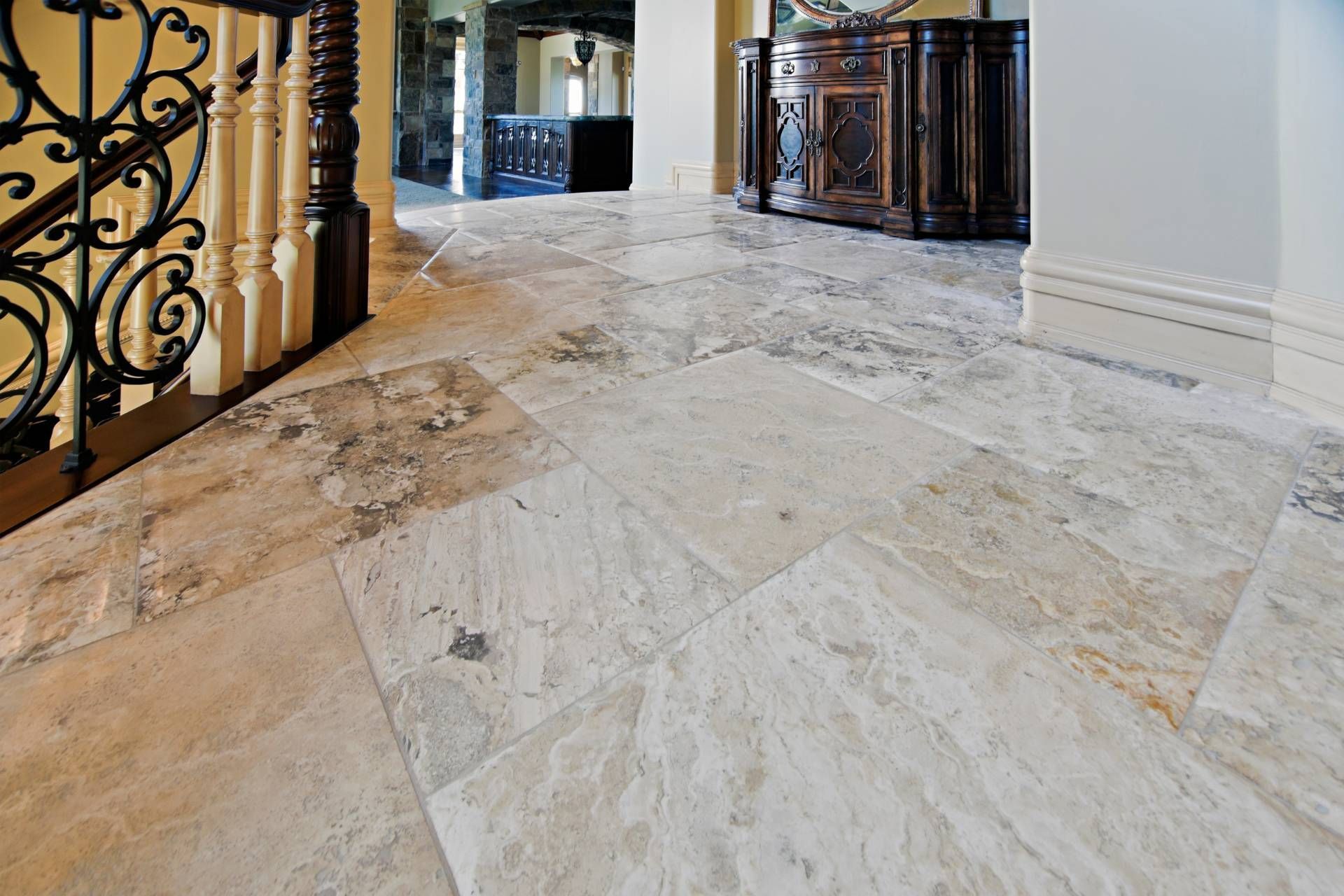Natural Stone Pavers vs Concrete Pavers
When it comes to choosing pavers for your outdoor space, one of the biggest decisions you'll have to make is whether to go with natural stone pavers or concrete pavers. Both options have their own unique advantages and disadvantages, which is why it's important to consider the specific needs of your project before making a decision. In this blog post, we'll take a closer look at the differences between natural stone pavers vs concrete pavers to help you determine which option is best for your outdoor space.
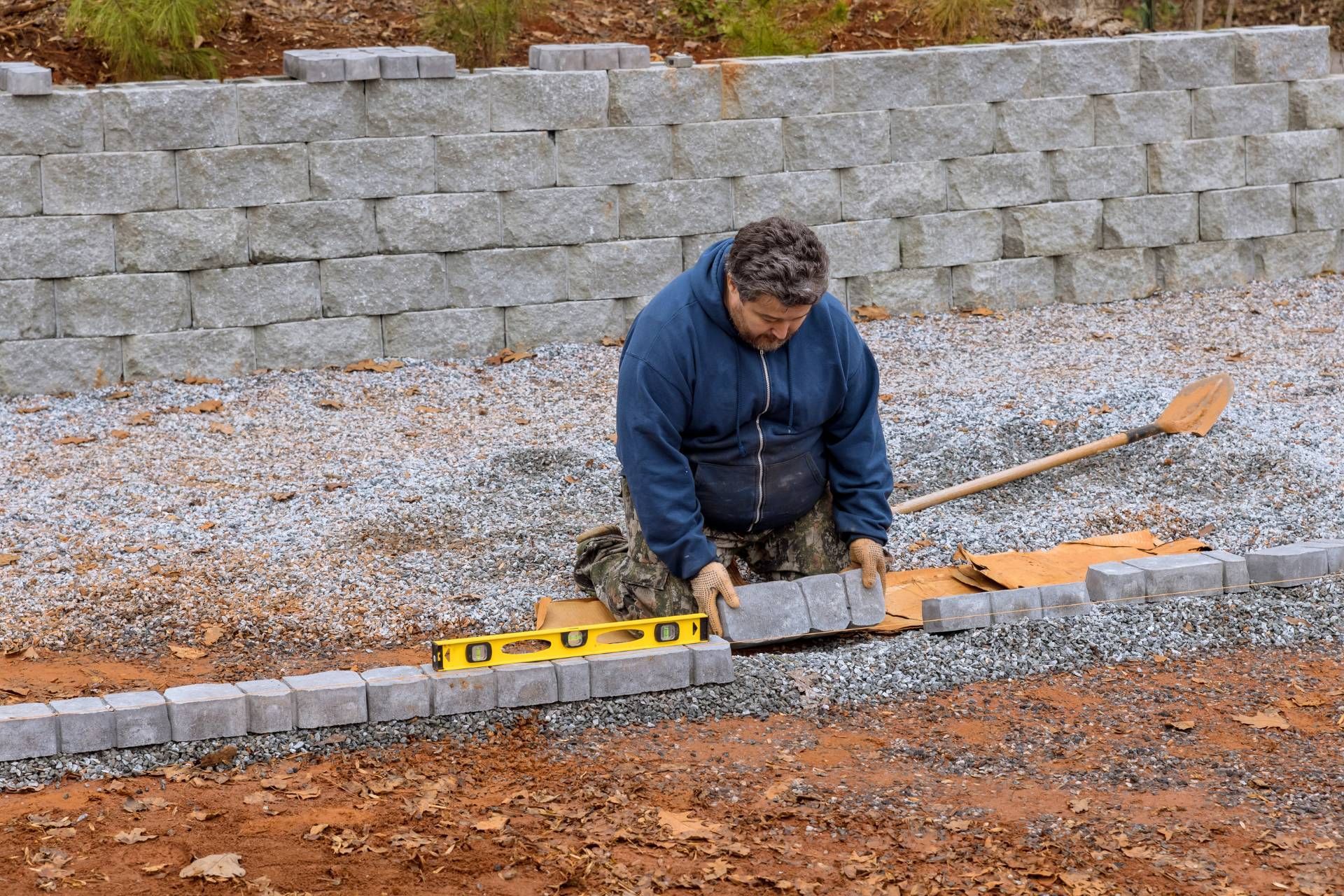
What are Natural Stone Pavers?
Natural stone pavers are a type of material used for outdoor landscaping projects such as patios, walkways, driveways, and pool decks. These pavers are made from natural stones like limestone, granite, and travertine, each offering a unique and beautiful look that adds a touch of elegance to any outdoor space.
Natural stone pavers come in a variety of sizes, shapes, colors, and textures, allowing you to create a truly customized and sophisticated design for your outdoor area. Whether you prefer a classic and timeless look with smooth, uniform pavers, or a more rustic and natural feel with irregularly shaped stones, natural stone pavers offer endless possibilities for creating a one-of-a-kind outdoor oasis.
Pros:
1. Durability: Natural stone pavers are incredibly durable and can withstand the elements without losing their beauty. They are resistant to cracking, fading, chipping, and scratches, making them an excellent choice for high-traffic areas.
2. Aesthetic appeal: Natural stone pavers have a timeless and elegant look that can enhance the overall beauty of your outdoor space. They come in a variety of colors and textures, giving you endless design possibilities.
3. Low maintenance: Natural stone pavers require minimal maintenance, with regular sweeping and occasional sealing being all that is needed to keep them looking their best. They are also resistant to staining, making them a practical choice for outdoor surfaces.
4. Versatility: Natural stone pavers can be used for a variety of applications, including patios, driveways, walkways, pool decks, and more. Their versatility makes them a popular choice for many homeowners.
5. Eco-Friendly: Natural stone pavers are a sustainable option for your outdoor space, as they are made from natural materials that do not release harmful chemicals or emissions. They are also recyclable and can be repurposed after use.
Cons:
1. Cost: Natural stone pavers are typically more expensive than other materials, such as concrete or brick. The initial cost of installation can be higher, but many homeowners believe that the long-term benefits outweigh the upfront investment.
2. Porosity: Some types of natural stone pavers, such as limestone and travertine, are porous and can absorb water, which can lead to staining or discoloration. Regular sealing can help prevent this issue.
3. Slippery when wet: Natural stone pavers can become slippery when wet, posing a safety hazard, especially around pool decks or other areas where water may be present. Choosing a textured or honed finish can help reduce the risk of slipping.
4. Limited color options: While natural stone pavers come in a variety of colors and textures, the selection may be more limited compared to other materials. If you have a specific color in mind, you may need to choose a different material.
What are Concrete Pavers?
Concrete pavers are a popular choice for homeowners and contractors alike when it comes to hardscaping projects. These versatile, durable, and cost-effective paving materials have become a staple in outdoor living spaces, driveways, walkways, patios, and more.
So, what exactly are concrete pavers? Concrete pavers are individual units or blocks made from a mixture of cement, sand, gravel, and water. These materials are poured into molds, then cured and dried to create strong, durable pavers that can withstand heavy foot traffic, vehicle weight, and the elements.
Pros:
1. Durability: Concrete pavers are known for their strength and durability, making them a long-lasting option for your outdoor space. They can withstand heavy foot traffic and harsh weather conditions without losing their shape or color.
2. Versatility: Concrete pavers come in a variety of shapes, sizes, and colors, allowing for endless design possibilities. Whether you're looking for a traditional or modern look, there is a paver option to suit your style.
3. Easy to install: Concrete pavers are relatively easy to install compared to other materials like natural stone or brick. They can be laid in a variety of patterns and can be easily replaced if damaged.
4. Low maintenance: Concrete pavers require minimal maintenance to keep them looking their best. Regular sweeping and occasional pressure washing are all that's needed to keep them clean and in good condition.
5. Cost-effective: Concrete pavers are a cost-effective option for
outdoor hardscaping projects. They are relatively affordable compared to natural stone or brick pavers and can last for many years with proper care.
Cons:
1. Cost: While concrete pavers are more affordable than natural stone, they can still be more expensive than other materials like gravel or mulch. The cost can vary depending on the size, shape, and color of the pavers you choose.
2. Susceptible to cracking: Like any concrete surface, concrete pavers can crack over time, especially in areas with frequent freeze-thaw cycles. Proper installation and maintenance can help prevent cracking, but it is still a possibility.
3. Staining: Concrete pavers can be prone to staining from oil spills, food, and other substances. While some stains can be easily removed with a pressure washer or
cleaning solution, others may require more intensive methods to remove.
4. Limited color options: While concrete pavers come in a variety of colors, they may not offer the same range of options as natural stone or brick. If you're looking for a specific color or texture, you may need to explore other materials.
5. Potential for weeds: The gaps between concrete pavers can provide an opportunity for weeds to grow. To prevent this, regular maintenance such as applying weed killer or installing a weed barrier is necessary.
6. Limited load-bearing capacity: Concrete pavers may not be suitable for heavy-duty applications such as driveways that will see frequent use by heavy vehicles. In such cases, it is recommended to use thicker or reinforced pavers.
7. Lifting and shifting: Over time, concrete pavers may shift or lift due to ground movement or the growth of tree roots underneath. This can create an uneven surface that may pose a tripping hazard.
8. Fading: The color of concrete pavers may fade over time, especially in areas with high exposure to sunlight. To maintain their appearance, it may be necessary to apply a sealer or stain periodically.
Are Natural Stone Pavers a Better Option?
Natural stone pavers offer a number of advantages over other paving materials. With their durability, beauty, ease of maintenance, and eco-friendly properties, natural stone pavers are a superior choice for any outdoor project. Whether you are looking to create a functional driveway, a stylish patio, or a welcoming walkway, natural stone pavers are sure to enhance the beauty and value of your outdoor space. Consider natural stone pavers for your next outdoor project and enjoy the many benefits they have to offer.
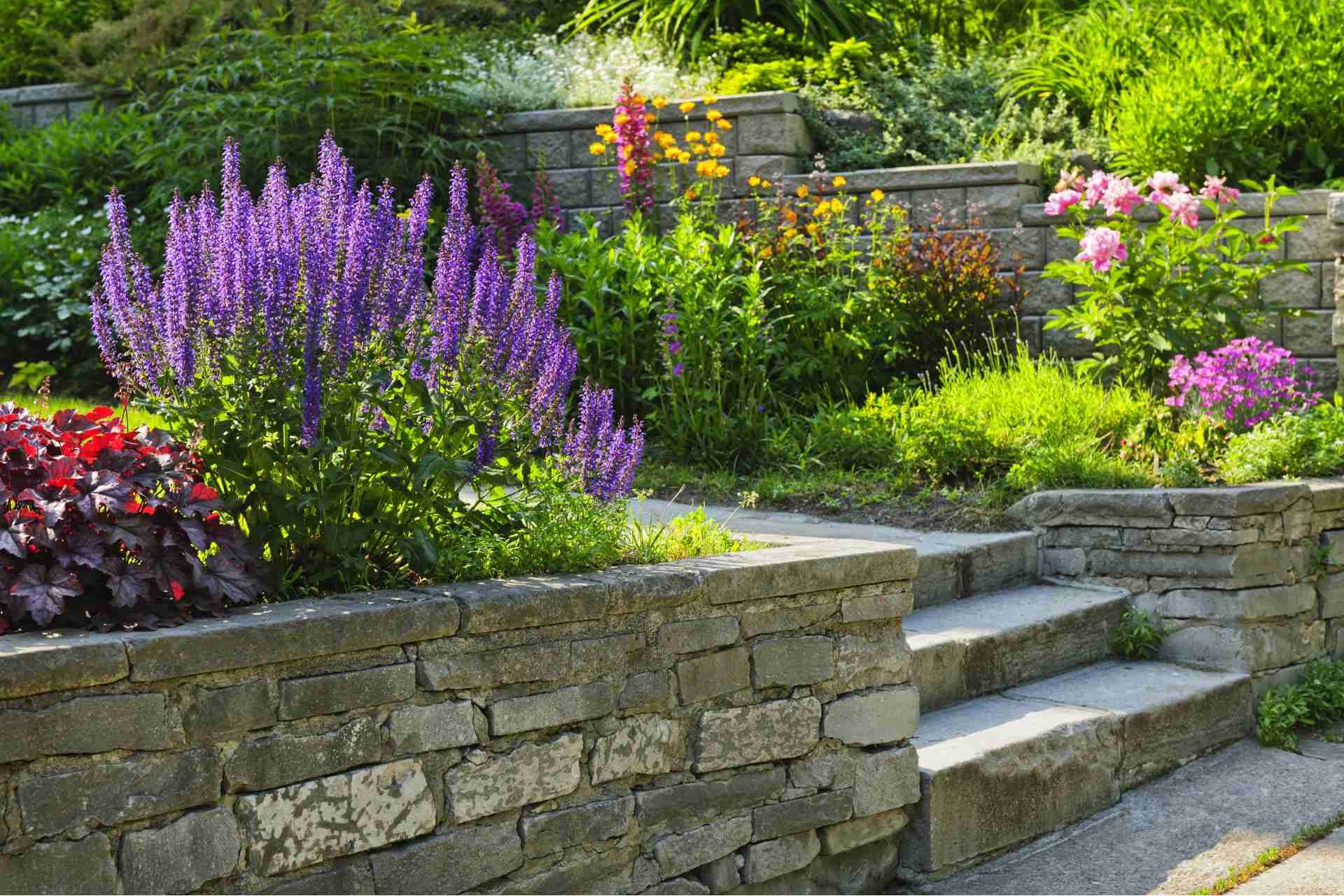

NH Thinstone
760 NH-16
Ossipee, NH 03864
CALL US
Phone: (603) 837-6685
EMAIL US
Email: ordersnht@gmail.com
HOURS
- Monday
- -
- Tuesday
- -
- Wednesday
- -
- Thursday
- -
- Friday
- -
- Saturday
- Appointment Only
- Sunday
- Appointment Only
Copyright © 2023 NH Thinstone, All Rights Reserved.

